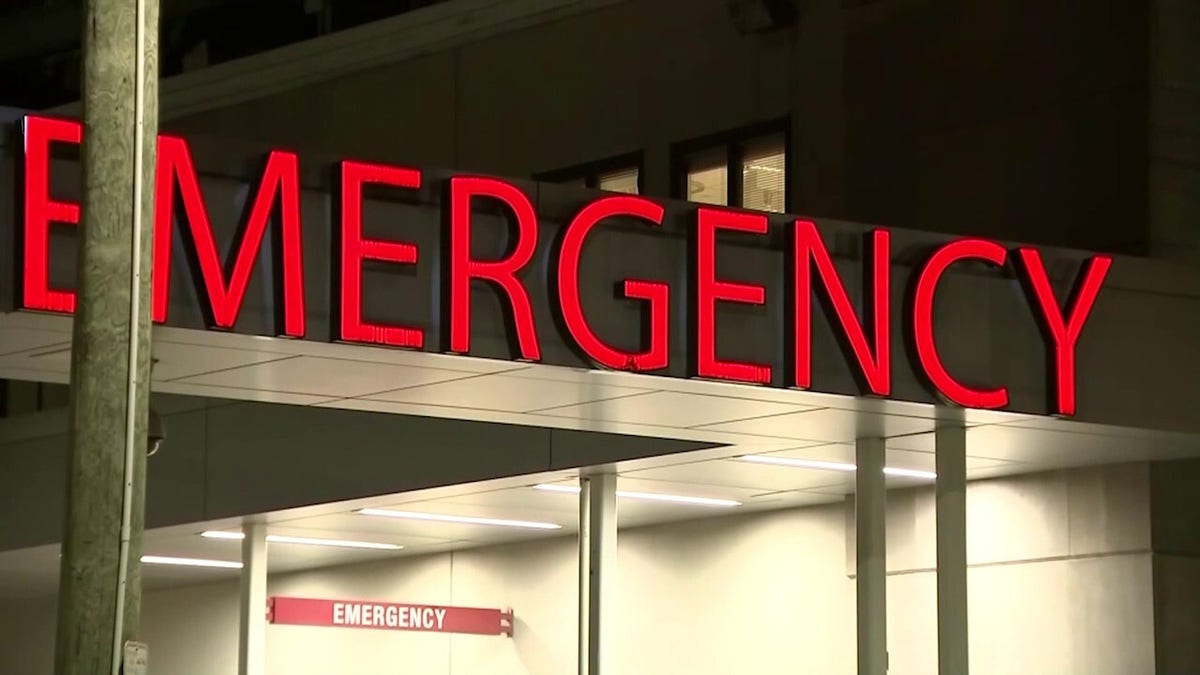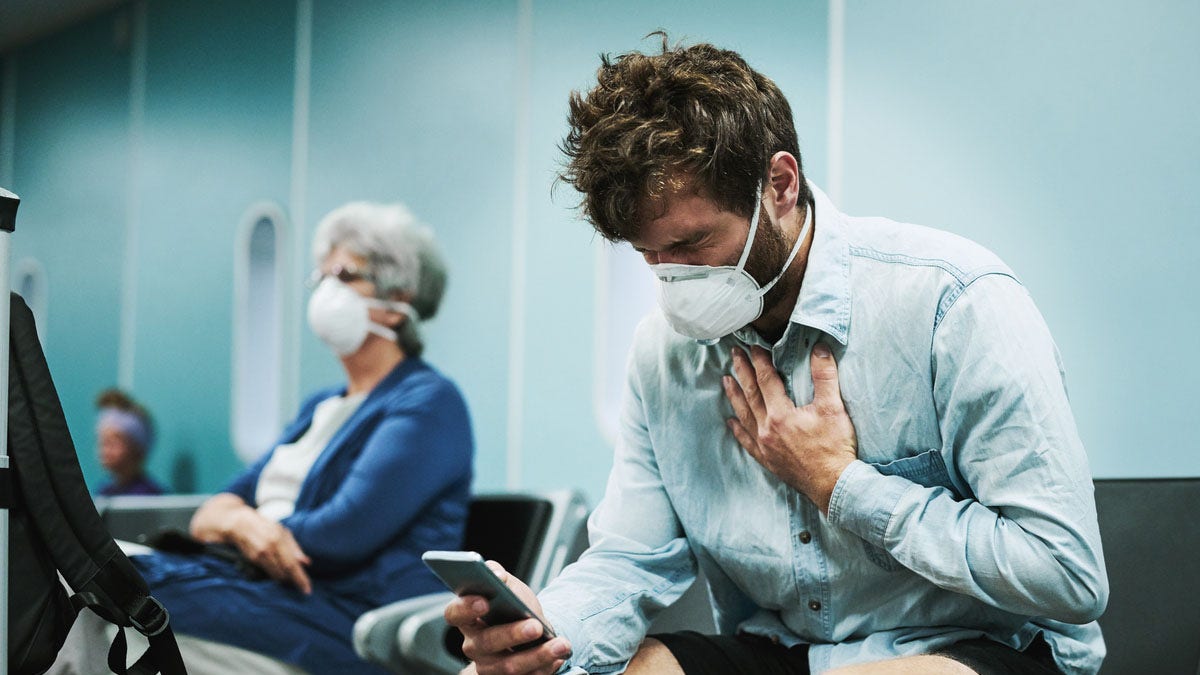‘Should I go to the ER or urgent care?’: Ask the doctor
When you’re feeling unwell and symptoms are rapidly worsening, you know you need medical attention — but it’s not always possible to get a same-day appointment with your primary care physician.
When a sudden and severe illness requires immediate care, the two most common options are to visit an urgent care or go to a hospital emergency room – but how do you know which is best?
Fox News Digital spoke with dozens of doctors to find out when an urgent care center is enough and what warrants a trip to the ER.
MEDICAL STUDENTS PROVIDE MAIR REMOVING AND NURSING SERVICES TO PATIENTS: ‘HUMAN AGE’
Time to go to urgent care
Urgent care centers provide immediate health care services for walk-in patients, often offering extended hours and same-day availability.

When a sudden and severe illness requires immediate care, the two most common options are to visit an urgent care or go to a hospital emergency room. (iStock)
They can be considered a “middle ground” between a primary care physician and the ER, according to the Mayo Clinic.
There were 10,728 urgent care clinics operating in the US as of earlier this year, according to Definitive Healthcare in Massachusetts.
GROWTH IS OVER 340% THIS TIME LAST YEAR.
Urgent care centers often treat a wide range of illnesses and injuries, and may have a treatment or operating room for minor medical procedures such as stitches, casts, and high-risk surgery. down under local anesthesia only, according to one source.
Other services may include basic laboratory tests and imaging, as well as training for further treatment.
These centers may be staffed by physicians, nurses, physician assistants, nurse practitioners, and other medical professionals.

Urgent care centers often treat a wide range of illnesses and injuries, and may have a treatment center or facility to perform minor medical procedures. (iStock)
“If it’s after hours or on the weekend, some cases can be rushed and can’t wait until the next business day,” Mishi Jackson, MD, lead physician at Novant Health Union Cross Family Medicine in Winston-Salem, North Carolina, he said. Fox News Digital.
“For example, a simple bladder infection can spread to the kidneys and blood and cause serious consequences.”
“Most patients know exactly what makes something small as opposed to something big.”
Jackson noted that not all urgent care centers offer the same services. She encourages patients to do their own research beforehand to make sure the facility they are going to can help with their needs.
“With minor injuries or illnesses, an urgent care center may be appropriate,” Matthew Shannon, MD, director of community emergency medicine at University of Florida Health in Gainesville, Florida, told Fox News Digital.
Amid GROWING HEALTH CARE PROBLEMS IN UK, 8 MILLION PATIENTS ARE WAITING FOR CARE, INDICATIONS SHOW.
“Most patients know exactly what makes something small as opposed to something big.”
Below are some of the conditions that can usually be treated immediately, according to the Mayo Clinic website.

The ER is open 24/7 and is equipped to treat “healthy or life-threatening conditions,” the Mayo Clinic noted, such as seizures, heart attacks, heavy bleeding, loss of consciousness, heart disease or other progressive medical problems. (KYW)
Time to go to the ER
The ER is open 24/7 and is equipped to treat “healthy or life-threatening conditions,” the Mayo Clinic noted, such as seizures, heart attacks, heavy bleeding, loss of consciousness, heart disease or other progressive medical problems.
The emergency room has critical care services and staff that an urgent care clinic does not have, including cardiologists, neurologists and orthopedic specialists, according to one source.
JOHNNY DEPP VISITS DAMAGED CHILDREN’S HOSPITAL AS CAPTAIN JACK SPARROW IN ‘MOMENT OF SAD’
The ER will also have access to imaging and laboratory equipment that may not be available in urgent care.
Below are some of the types of conditions that warrant a trip to the ER, as listed on the Mayo Clinic website.
- Chest pain or pressure
- Fracture of the joint (bone breaking through the skin)
- Head injuries
- I’m pregnant
- Despair
- Severe abdominal pain
- Difficulty breathing
- Sudden, severe headache, or paralysis or weakness
- Uncontrolled bleeding

Chest pain or pressure is one of the symptoms that warrants a trip to the ER, experts say. (iStock)
Other emergencies include a high fever, fainting or the sudden onset of symptoms such as slurred speech, confusion or weakness on one side of the body, according to Shannon.
A patient who has been involved in a serious car accident should also visit the ER.
CLICK HERE TO GET THE FOX NEWS APP
Patients can experience long wait times in emergency departments, Shannon noted.
“All patients who come to emergency departments around the country are charged based on a comprehensive complaint system, their medical history and vital signs,” he told Fox News Digital.

Patients may experience long wait times in emergency departments, the doctor warned. (iStock)
“Patients identified as sick are brought back quickly, so the medical team can begin their examination,” he continued. “Trained emergency nursing staff and other providers examine you as a patient and provide first aid.”
“Your care starts right when you walk in the door and talk to a nurse.”
CLICK HERE TO REGISTER FOR OUR LIFESTYLE
If your condition is mild, Shannon recommends trying to see your primary care doctor, even if you have to wait a day.
He said: “If you believe you can wait, it makes sense to try to get your primary care to see you.”
“Unfortunately, we don’t seem to have enough primary care providers, and demand for primary care continues to outstrip supply.”

“For minor injuries or illnesses, an urgent care facility may be appropriate,” said the doctor. (iStock)
Time to call 911
If any of the following apply, you should call 911 immediately, according to the American College of Emergency Physicians.
- Your condition is life-threatening and you need immediate medical attention
- You can’t move yourself or someone else without causing more harm
- You are physically or emotionally unable to drive and need to be taken to the hospital’s ER
For more articles, visit www.foxnews.com/health
The Mayo Clinic advises calling 911 “if you have trouble breathing, shortness of breath, life or limb danger, or symptoms of stroke or heart attack.”
#urgent #care #doctor
